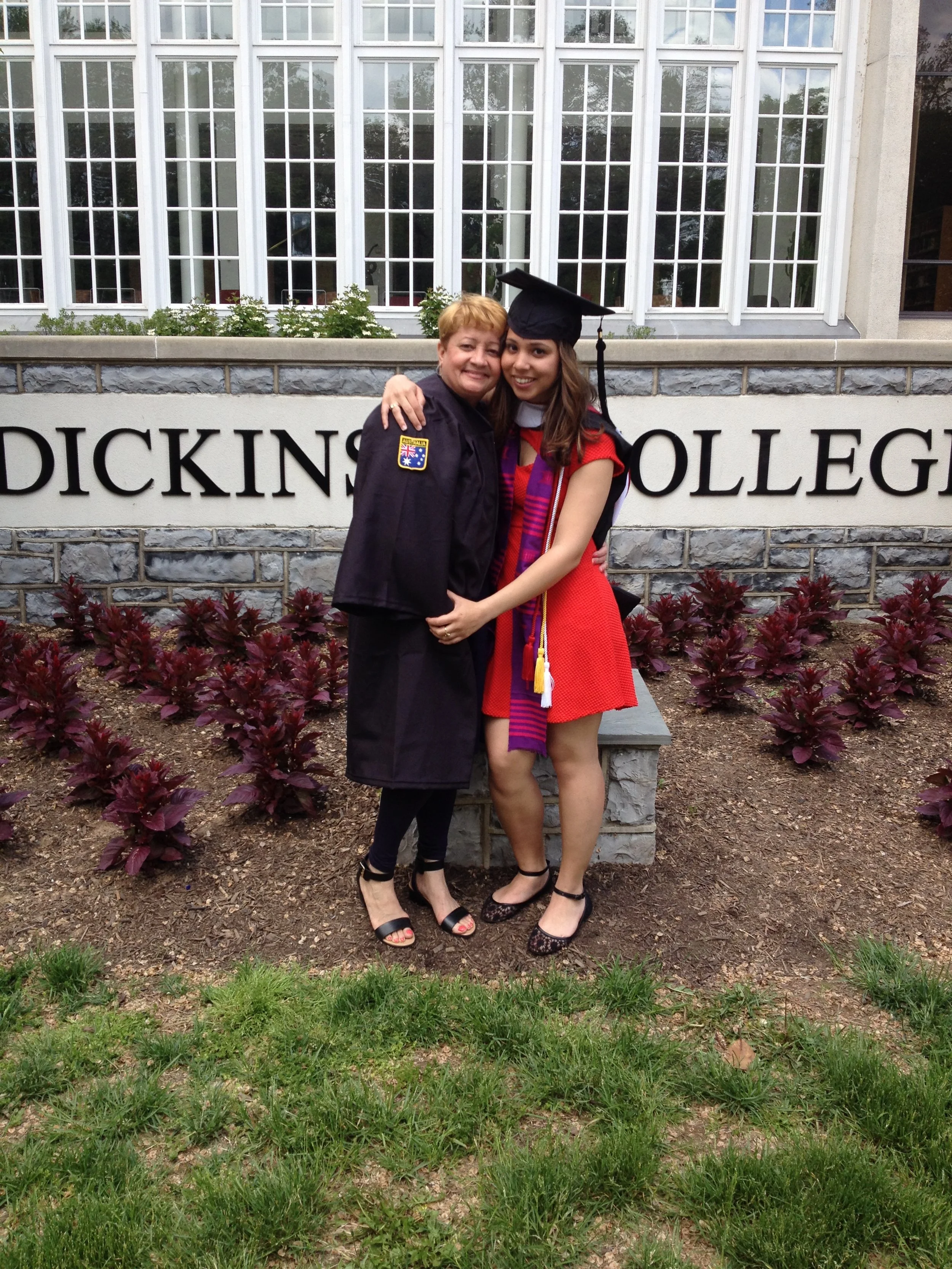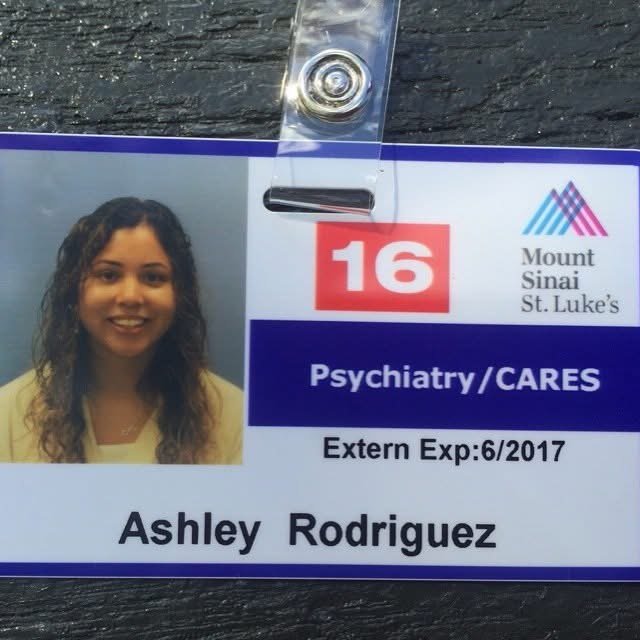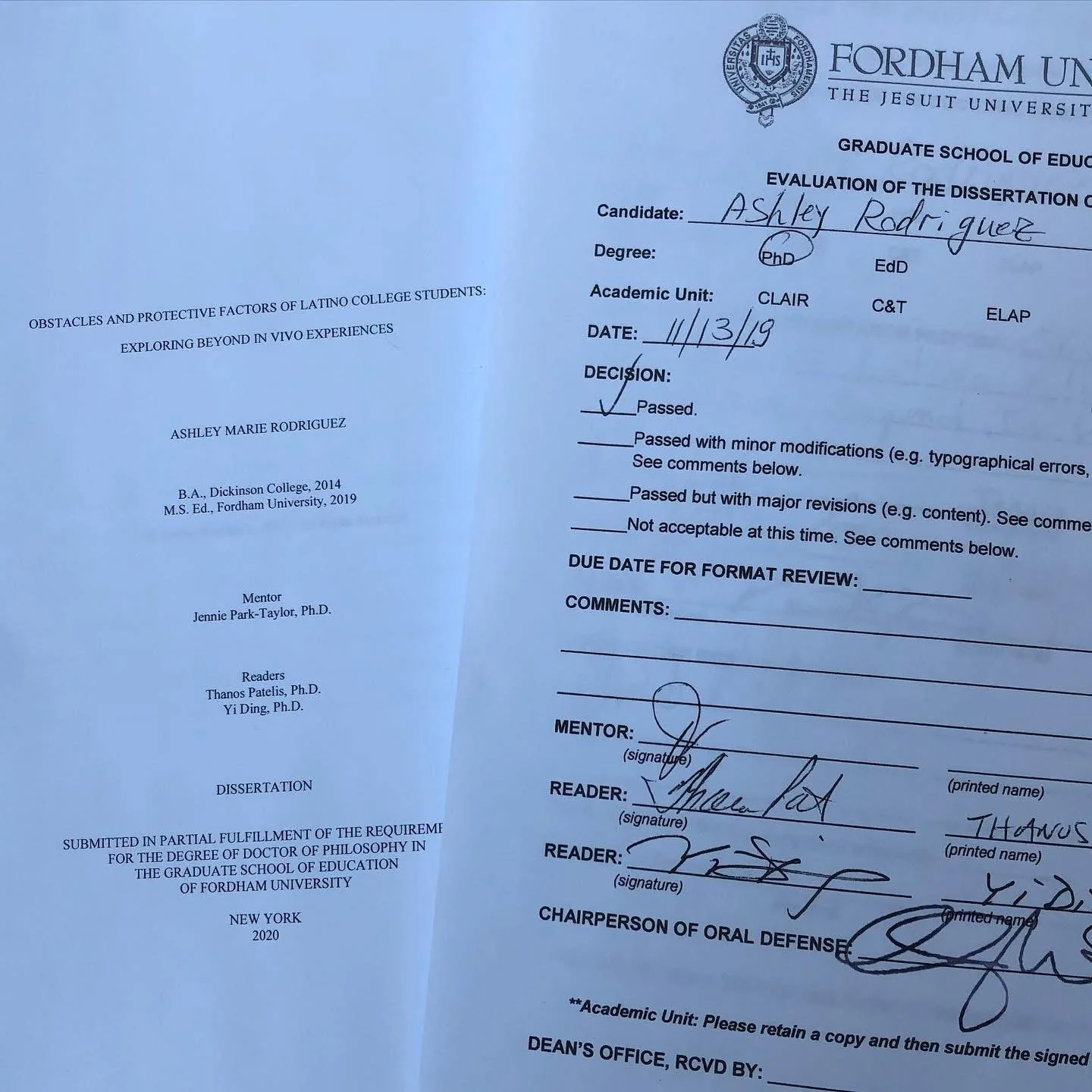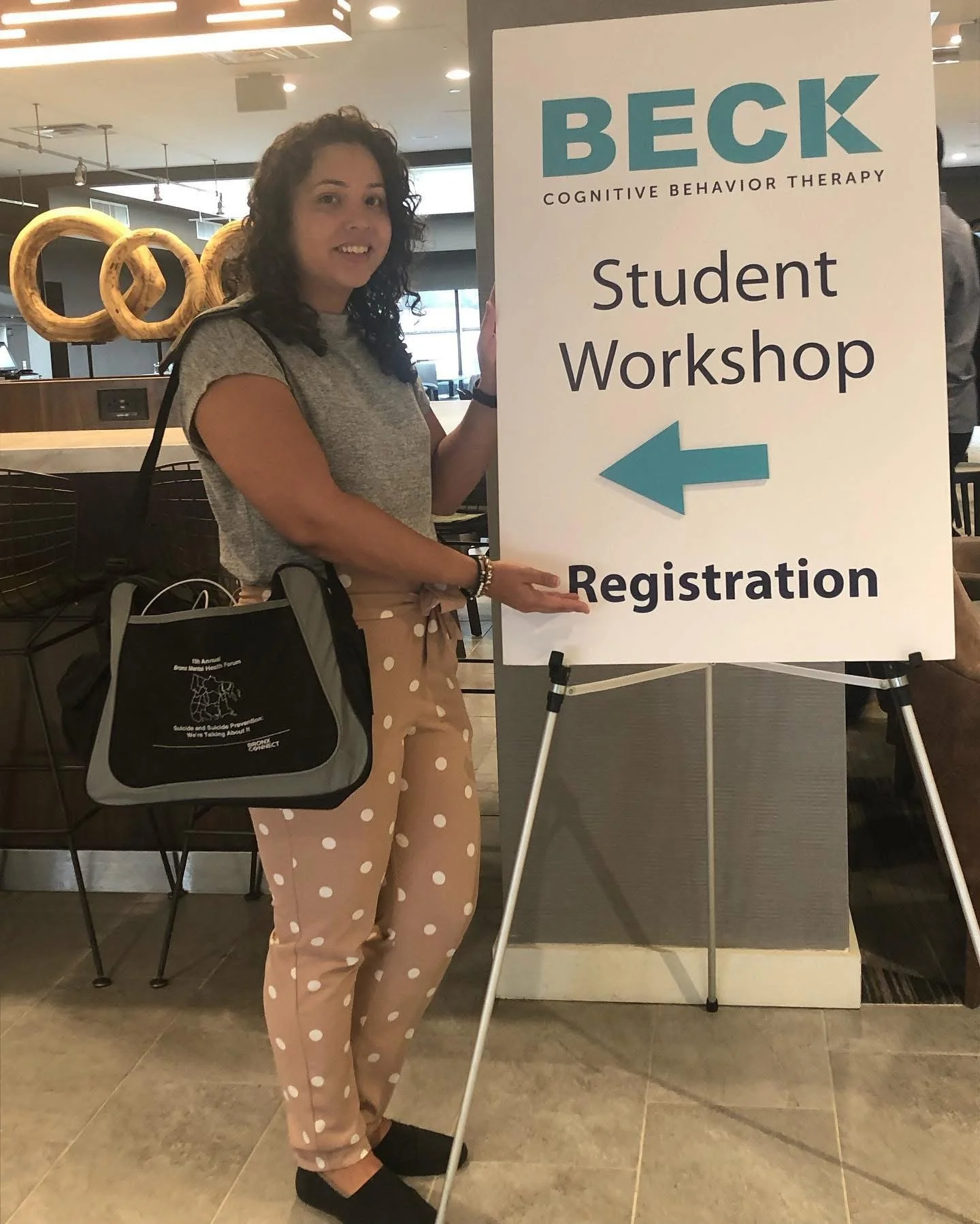About Ashley Rodriguez, PhD: Latina Psychologist & Trauma Therapist in New York and New Jersey
I am Dr. Ashley Rodriguez, a licensed psychologist and trauma therapist based in New York City. As a Latina psychologist and clinician of color, my work is grounded in the belief that healing is possible when people feel seen, understood, and supported in all parts of their identity.
Many of the clients I work with are parents and/or first-generation professionals who carry a lot on their shoulders. You may notice old family dynamics creeping into your relationships, or feel weighed down by expectations that are hard to shake. You might be navigating the transition to parenthood, trying to balance cultural values with your own needs, or wrestling with imposter feelings even as you achieve more. As a Latina psychologist and trauma therapist in New York City, I specialize in supporting clients who want to feel more grounded, connected, and confident as they create lives that feel authentic to them.
My path to becoming a psychologist
My journey has always been shaped by a passion for supporting families and communities. I was inspired early on by my mother, who worked as a correctional counselor. Growing up in East Harlem, we would sometimes bump into her former clients who were eager to share their progress and thank her for the impact she had on their lives. Watching her work showed me the power of human connection and change. While her work took place within the correctional system, my hope was to focus on prevention by supporting families before they became involved in such systems.
Education quickly became my golden ticket. I grew up knowing that doing well in school would open doors for me, so I poured myself into academics. As a first-generation student, I often felt the pressure to succeed and carried the weight of being the first. I earned a POSSE scholarship to college, which gave me incredible opportunities, but it also confronted me with the realities of being first-gen at a predominantly white institution. I often felt different from my peers, which led me to put enormous expectations on myself and to feel like I had to figure out many things on my own.
During my doctoral training at Fordham University, I faced countless microaggressions and moments of doubt, questioning whether I belonged. These experiences deepened my understanding of the imposter phenomenon and strengthened my commitment to becoming a supportive and affirming presence for others who feel unseen in professional or personal spaces.
I have worked with individuals of all ages in a variety of settings, including child welfare, pediatric primary care, therapeutic preschool programs, intensive outpatient treatment for high school students with both mental health and substance use concerns, and outpatient hospital clinics. Through these experiences, I have learned that people are often doing the best they can with the tools they have, and that therapy can be a powerful way to expand those tools and create new possibilities.
Alongside this more general experience, I have developed a particular focus in perinatal mental health and infant and early childhood mental health (IECMH). In these areas, I have supported parents and young children during some of the most critical transitions in family life. I have deeply enjoyed helping parents gain awareness of how their own childhoods have shaped them and supporting them as they build confidence in their parenting. It has been an honor to witness parents grow into their identities as caregivers, and I have cherished being part of a family’s journey while watching their young children grow and thrive.
Today, I specialize in supporting individuals and families as they work through trauma, heal intergenerational patterns, adjust to pregnancy and early parenting, and explore identity development. It is my privilege to hold space for my clients’ healing, and I am continually reminded of how much I learn from their resilience, wisdom, and unique stories.
A lifelong learner
As a Latina therapist and psychologist of color, I know how important it is to keep learning and growing in this field. I see professional development not only as a way to expand my knowledge, but also as a way to honor my clients by bringing the most thoughtful, evidence-based, and culturally responsive care to our work together.
My training has been especially focused on perinatal mental health and infant and early childhood mental health (IECMH)—two areas where early intervention and relational support can change lives for generations.
Recent Trainings and Certifications
Becoming Us Perinatal Mental Health and Relationship Training with Elly Taylor (2025)
Certified Perinatal Mental Health Professional – Psychotherapy Track (PSI, 2023)
Advanced Perinatal Mental Health Psychotherapy (PSI, 2023)
Maternal Mental Health Certificate Training for Mental Health and Clinical Professionals (PSI & 2020 MOM, 2023)
Understanding Perinatal Trauma with Mara Tesler Stein, PsyD, PMH-C (2024)
Lactation Counselor Training Course (Center for Breastfeeding, 2025)
Child–Parent Psychotherapy Learning Collaborative, NYU (2023–2025)
Zero to Three DC 0–5 Diagnostic Classification Training (2024)
Foundations of Family Therapy, Ackerman Institute for the Family (2020–2021)
Introductory Clinical Training for the ADOS-2 (2018)
Professional Presentations
I also enjoy sharing what I learn with others. Some of my recent presentations include:
Guest Lecture, NYU Post-Master’s Certificate in Child and Family Therapy, Session 3 (2024): Often Overlooked: Prenatal/Postpartum Influence & Establishing Family Dynamics before the Child is Born or Adopted.
Promoting Culturally Responsive Clinical Practice with Latinx Migrant Families (Evidence Based Treatment Dissemination Center, 2024)
Working with Latinx Migrant Families (Bellevue Hospital Center, 2023)
Cultural and Language Challenges in Assessing Depression in Latinx Adults (National Latinx Psychological Association Conference, 2021)
Multiculturalism and Acculturation in the Parent–Child Relationship (New Alternatives for Children, 2020)
I believe that being a lifelong learner allows me to bring both depth and humility to my role as a trauma therapist, ensuring that the therapy I provide is always evolving, responsive, and rooted in best practices. I enjoy attending conferences, such as the National Latinx Psychological Association conference, to stay connected with colleagues and keep up with emerging research. I also value learning about liberation psychology and spirituality, because I believe many of our communities hold wisdom that has not always been recognized by the field of psychology.
Part of why I serve as an editorial board member for the Journal of Latinx Psychology is to remain engaged with current scholarship and to support the advancement of research that reflects and uplifts our communities. These commitments keep me grounded in both the science of psychology and the lived wisdom of the people I work with.
Fun facts about me
While I take my work seriously, I also believe in bringing authenticity and joy into the therapeutic relationship. Here are a few things about me outside the therapy room:
I am a proud fur mom to a Havanese pup named Rubio, who sometimes likes to say hi during sessions.
I love to read, though I admittedly buy books faster than I can get through them.
Long walks are my favorite way to clear my mind and recharge.
I enjoy mentoring and giving back, especially to students and early career professionals who are finding their path.
My guilty pleasure is analyzing relationship dynamics in reality TV shows.
Frequently Asked Questions
-
A trauma therapist is a mental health professional trained to help clients process and heal from difficult or overwhelming experiences. As a trauma therapist in New York City, I support clients in understanding how past experiences may still be affecting their emotions, relationships, and sense of self. Together, we work toward healing in a way that feels safe, supportive, and empowering.
-
Trauma-informed therapy is an approach that recognizes how trauma can affect the mind, body, and relationships. It means creating a space where safety, trust, and empowerment are central. Being trauma-informed also means asking “What happened to you?” rather than “What is wrong with you?”—shifting the focus away from blame or shame and toward curiosity and compassion. As a Latina psychologist and clinician of color, I integrate cultural responsiveness, acknowledging how systemic oppression and identity shape the impact of trauma.
-
I believe that the earlier we can support families, the more lasting the change can be. Working in IECMH and perinatal mental health allows me to intervene during critical transitions, helping families build secure attachment and strong foundations. As a Latina, family has always been a central value in my life. I enjoy working with family units to strengthen their bonds, and to support them in establishing their own norms, expectations, and rules that reflect who they are and what they want for their future.
-
I work with adults navigating anxiety, depression, relationship stress, and trauma, with a special focus on perinatal mental health, infant and early childhood mental health, intergenerational trauma, and identity development. Many of my clients are BIPOC, first-generation professionals, or parents seeking support to feel more grounded, confident, and connected.
Moving forward together
Whether you are seeking support as an individual, parent, or professional, therapy can be a powerful space to rediscover your strength and resilience. I am honored to walk alongside those who are ready to heal, grow, and break cycles that no longer serve them.
If you are curious about working together, I invite you to reach out and schedule a consultation. You are not alone in this journey.











